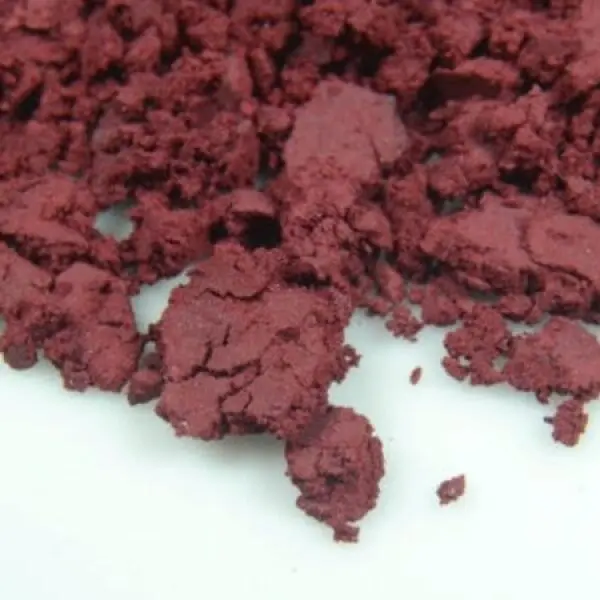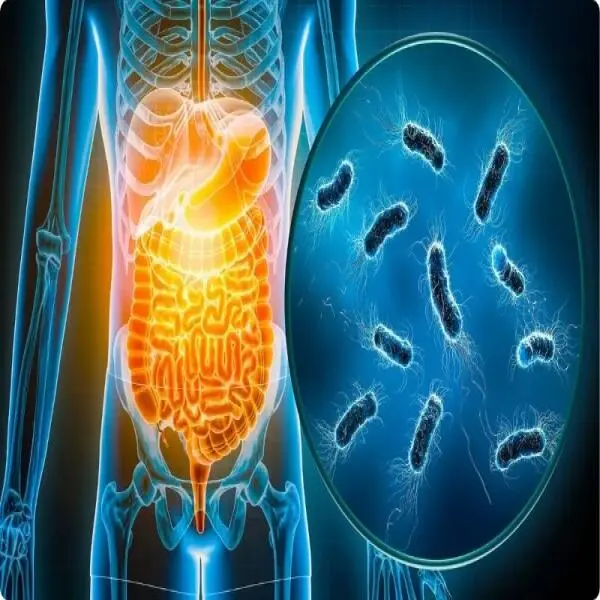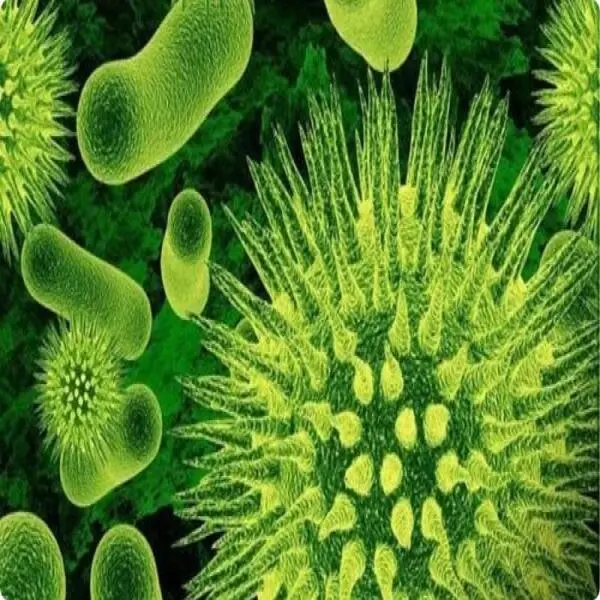
Nitrogen, symbolized as N with an atomic number of 7, is a chemical element that plays a vital role in both natural ecosystems and industrial applications. It exists primarily as a diatomic gas (N₂) at room temperature, characterized by being colorless, odorless, and tasteless. Nitrogen also appears in its liquid form (liquid nitrogen) under extremely low temperatures, widely used for its unique properties.
In this article, we will delve into nitrogen's properties, applications, and significance, answering common questions like what is nitrogen and exploring nitrogen facts and its formula.
What Is Nitrogen?
Nitrogen is a non-metal and the most abundant element in Earth's atmosphere, comprising about 78% of the air we breathe. Despite its abundance, nitrogen is inert under standard conditions, which makes it ideal for various applications where a non-reactive environment is essential. Nitrogen can be found in three primary forms:
- Nitrogen Gas (N₂): Exists naturally in the atmosphere, used in numerous industries.
- Liquid Nitrogen (LN₂): Nitrogen in its liquid state at -196°C, produced through fractional distillation of liquid air.
- Solid Nitrogen: Achievable under specific extreme conditions but rarely used.
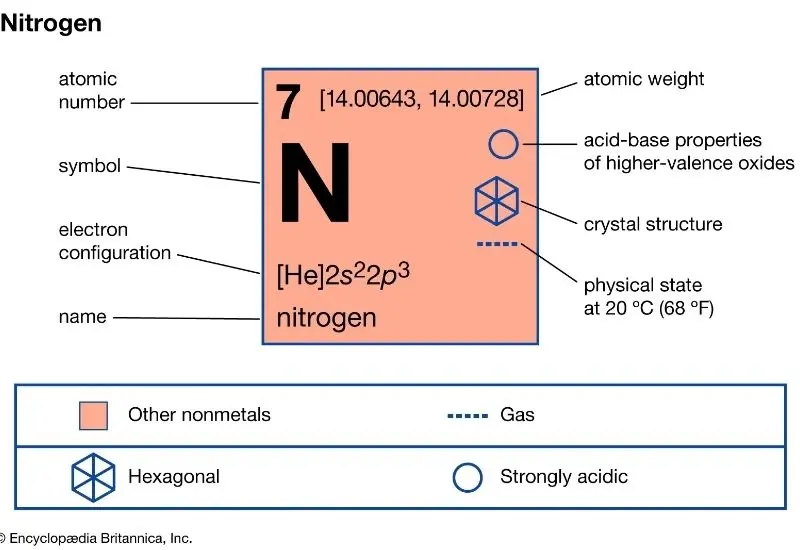
What Is Nitrogen?
The Nitrogen Formula and Key Properties
Nitrogen gas is diatomic, with the molecular formula N₂. This structure consists of two nitrogen atoms triple-bonded together, making the molecule highly stable. The primary characteristics of nitrogen are:
- Atomic Number: 7
- Atomic Mass: Approximately 14 u
- Melting Point: -210°C
- Boiling Point: -196°C
- Density: 1.25 g/L at standard temperature and pressure
- Reactivity: Non-flammable and does not support combustion.
This unique stability underlies nitrogen’s use as a protective atmosphere in various industries.
Nitrogen in Manufacturing and roduction
1. Food Preservation
Nitrogen's inert nature makes it an ideal choice for preserving food. It helps prevent oxidation, which can spoil food or alter its taste and texture. Key uses include:
- Extending shelf life: Nitrogen-filled packaging keeps snacks, nuts, and other perishables fresh.
- Nitro Coffee: Nitrogen-infused beverages like nitro coffee offer a creamy texture and enhanced flavor.
- Liquid Nitrogen: Used in rapid freezing of food items to maintain their freshness and texture.
2. Metallurgy and Manufacturing
Nitrogen is indispensable in the industrial sector:
- Welding: Nitrogen is used as an alternative to helium for welding copper and its alloys, offering cost-effectiveness.
- Steel Production: Incorporated into alloys for enhanced strength and corrosion resistance.
- Electronics: Nitrogen's inert properties help prevent oxidation in the production of circuit boards and semiconductors.
3. Cryogenics and Medical Applications of Nitrogen
Liquid nitrogen has numerous applications in the medical and research fields:
- Cryopreservation: Preserves biological samples like cells, tissues, and reproductive materials (sperm and eggs).
- Cryotherapy: Used for removing warts and other skin conditions through localized freezing.
- Transportation of Biological Samples: Maintains ultra-cold conditions during transport.
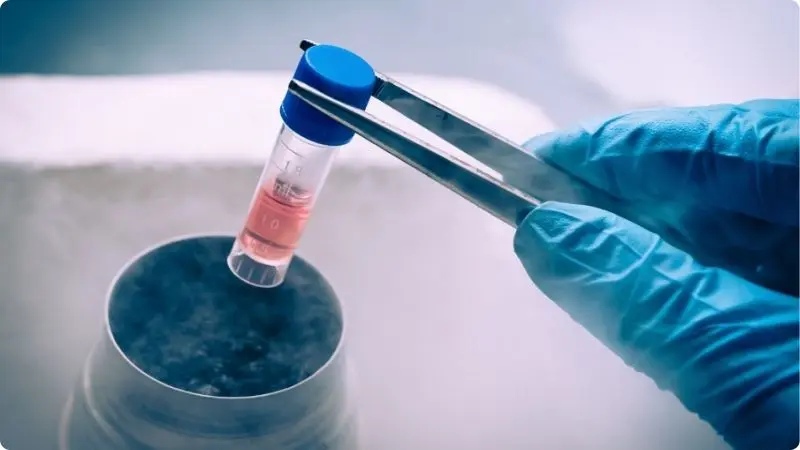
Liquid nitrogen has numerous applications in the medical and research fields
4. Fire Prevention
Replacing oxygen with nitrogen in confined spaces prevents combustion, making it a key component in fire suppression systems for industries handling flammable materials.
How Nitrogen Is Supplied
Nitrogen is distributed in various forms to suit specific industrial needs:
- Gas Cylinders: Pressurized nitrogen gas in portable containers.
- Liquid Nitrogen Tanks: Stored in insulated tanks for cryogenic applications.
- On-Site Nitrogen Generators: Machines that extract nitrogen from compressed air, offering cost-effective and continuous supply.
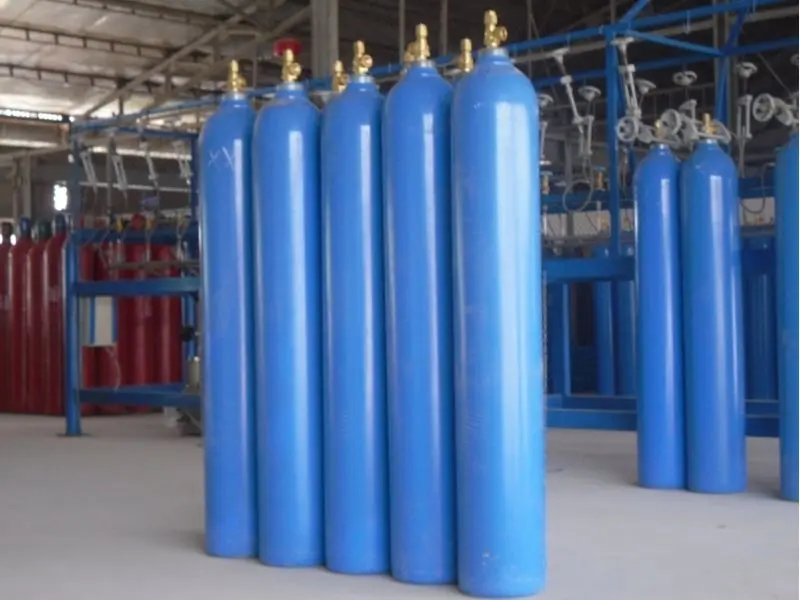
How Nitrogen Is Supplied
Wide-ranging Applications of Liquid Nitrogen
Liquid nitrogen (“LN₂”) is an ultra-cold, non-toxic substance with broad applications:
- Medical Research: Cryopreserving organs and biological specimens for future use. The extreme cold maintains cellular integrity during long-term storage.
- Culinary Arts: Creating smoky effects in gourmet dishes and molecular gastronomy. It is also used to instantly freeze delicate ingredients, preserving texture and flavor.
- Industrial Cleaning: Removing contaminants from machinery and equipment through cryogenic freezing, which allows debris to become brittle and detach easily.
- Scientific Research: Achieving low temperatures for experimental purposes in fields such as superconductivity and materials testing.
Nitrogen in Agriculture
Nitrogen is a critical nutrient for plant growth, making it a fundamental component of fertilizers. Key roles include:
- Chlorophyll Production: Nitrogen forms part of chlorophyll, enabling photosynthesis.
- Protein Synthesis: Plants require nitrogen to form amino acids, the building blocks of proteins.
- Energy Storage and Transfer: Nitrogen is essential in the formation of ATP, the molecule responsible for energy transfer in cells.
Nitrogen deficiency in plants often results in stunted growth and yellowing leaves, underscoring its importance in agriculture.
Nitrogen's Critical Importance to Ecosystems
Although nitrogen is crucial for life, its overuse in fertilizers can lead to environmental challenges such as water pollution from nitrogen runoff. This highlights the need for sustainable nitrogen management in agricultural practices.
Fun Nitrogen Facts
Nitrogen, a crucial component of life on Earth, is often overlooked despite its significant role. Let’s dive into some fascinating and lesser-known facts about this essential element:
1. The Air We Breathe
Approximately 78% of the Earth's atmosphere is composed of nitrogen. Although oxygen is vital for life, nitrogen dominates the air, acting as a buffer to reduce oxygen's flammability and maintain a stable atmosphere.
2. Nitrogen’s Colorless Presence
In its gaseous state, nitrogen is colorless, odorless, and tasteless. These characteristics make it seemingly "invisible" in everyday life, but its effects are everywhere—from the proteins in your body to the food you eat.
3. The Nitrogen Cycle’s Marvel
Nitrogen doesn’t just stay in the air. It participates in a fascinating natural cycle:
- Nitrogen in the atmosphere is "fixed" by bacteria in the soil or lightning into forms usable by plants.
- Animals and humans consume nitrogen through food, and the element eventually returns to the soil via waste or decomposition, completing the cycle.
4. Liquid Nitrogen: The Coolest Substance
Liquid nitrogen, at a chilly -196°C (-320.8°F), is used in cryogenics, food preservation, and even making ice cream! Its extreme cold temperature can instantly freeze objects and is a key tool in scientific experiments.
5. Nitrogen in Explosives
While nitrogen might sound harmless, its compounds can be quite explosive. Ammonium nitrate, a nitrogen-based compound, is a primary ingredient in fertilizers and explosives.
6. A Star Ingredient in DNA
Nitrogen is a building block of DNA, RNA, and amino acids—the molecules that make up life itself. Without nitrogen, there would be no proteins or genetic material to sustain life.
7. Nitrogen’s Role in Food and Drinks
Nitrogen gas is used in packaging chips to keep them fresh and prevent oxidation. It’s also responsible for the smooth texture in nitrogen-infused drinks like coffee or beer.
8. Its Discovery
It was the Scottish chemist Daniel Rutherford who first isolated nitrogen in 1772. He called it "noxious air" due to its inability to support combustion or life.
9. Industrial Importance
Nitrogen is key in industrial applications. From the production of ammonia for fertilizers to its use as an inert atmosphere for preserving materials, it’s an unsung hero of modern life.
10. Nitrogen Deficiency in Plants
Plants need nitrogen to grow, but too much or too little can have harmful effects. Farmers often monitor soil nitrogen levels to ensure optimal crop health.
Generating Your Own Nitrogen
Businesses often opt for on-site nitrogen generation to reduce costs and increase efficiency. The two main categories of nitrogen generators are:
- Membrane Generators: Use semi-permeable membranes to separate nitrogen from compressed air.
- PSA Generators (Pressure Swing Adsorption): Employ adsorbent materials to extract nitrogen, achieving purities up to 99.999%.
Benefits of on-site generation include:
- Reduced transportation costs.
- Consistent supply tailored to specific purity and pressure requirements.
- Elimination of dependency on third-party suppliers.
Conclusion
Nitrogen’s unique properties and versatile applications make it an invaluable resource across industries, from agriculture to aerospace. Understanding what nitrogen is, its formula (N₂), and its various uses offers insights into its importance for both industrial and biological processes. With sustainable practices, nitrogen will continue to be a cornerstone of innovation and development.
Related Articles
Unraveling the Importance of Phosphorus in Human Health
Phosphorus, also known by its ionic form phosphate (PO₄³⁻), plays an essential role in the health of ...
The Essential Role of Beneficial Bacteria in Agriculture and Health
Beneficial bacteria are indispensable allies in maintaining a balanced ecosystem and promoting ...
What Does Proper Pond Maintenance Involve? Pond Maintenance Made Easy
Owning a pond can significantly enhance the beauty of your garden, providing a serene retreat for ...
Understanding Synbiotics: Definition, Benefits, and Their Role in Health
In the pursuit of optimal health, maintaining a balanced gut microbiome is essential. Synbiotics, a ...
The Importance of Water Circulation: Why It Matters and How to Optimize It
Water circulation is a vital aspect of maintaining water quality and ensuring proper functioning in ...
Optimizing Pond Circulation for a Healthy and Vibrant Ecosystem
Pond circulation is a critical aspect of maintaining a clean, healthy, and balanced pond ecosystem. ...

